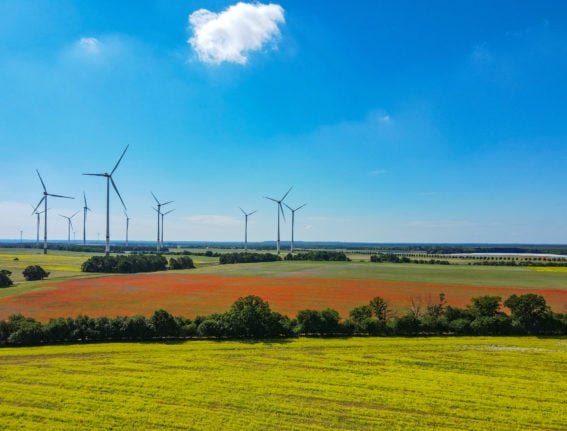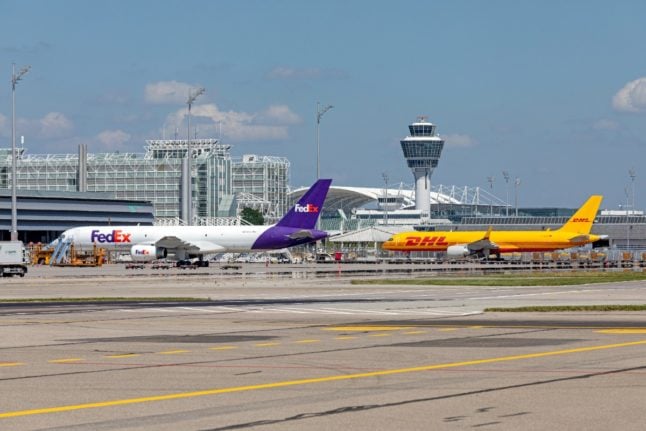The push to accelerate the expansion of wind power comes as Germany is scrambling to wean itself off Russian fossil fuels following the war in Ukraine.
“Independence from fossil energies and from Russian fossil energies must be advanced at full speed,” Energy Minister Robert Habeck told reporters.
The draft law adopted by Chancellor Olaf Scholz’s cabinet still needs to approved by parliament.
The goal is for Germany’s 16 states to collectively dedicate two percent of the nation’s surface area to wind power generation by the end 2032 — up from 0.5 percent currently.
READ ALSO: Germany races to stockpile gas before winter
The installation of wind turbines regularly runs into “not in my backyard” resistance in Germany and objections from residents have often blocked such projects in the past, as have concerns about endangering local wildlife.
Habeck said the proposed legislation would take away some of the leeway that regional governments currently have, and force them to abide by fixed targets that vary according to a state’s size and specific criteria such as wind conditions and areas reserved as nature protection zones.
Under the bill, most states would have to set aside 1.8-2.2 percent of their land for wind turbines, while the city states of of Berlin, Hamburg and Bremen would only have to reach a 0.5-percent target.
Should regions fail to meet the objective, the federal government could override local rules on maintaining a minimum distance between homes and windmills.
‘Concerns’
Regional states unable to meet their target would be allowed to negotiate with other states that they build more wind turbines to make up for the difference, in return for financial compensation.
The federal government also pledged to simplify species protection rules in an effort to remove another frequent hurdle on the path to more wind turbines.
Habeck said he understood the proposed measures would be met with opposition or even fear in some regions, but “there is a difference between taking concerns seriously and allowing those concerns to become a political blockade”.
Scholz’s Social Democrat-led government, which also includes Habeck’s Green party and the liberal FDP, aims for Europe’s top economy to get 80 percent of its electricity from renewables by 2030.
After years of increasing the share of renewables in its energy mix, the proportion of renewables fell last year for the first time since 1997, to 42 percent compared with 45.3 percent in 2020.
READ ALSO: Bavaria demands share of revenues for residents living near wind farms



 Please whitelist us to continue reading.
Please whitelist us to continue reading.
Member comments